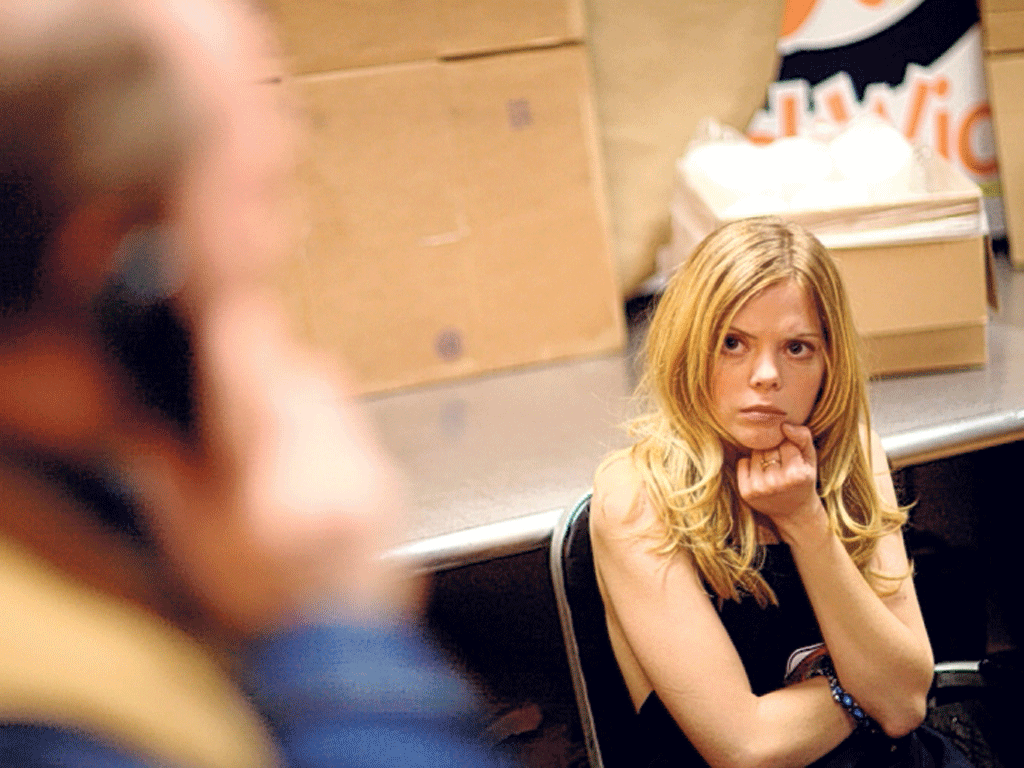The most disturbing film ever made?
Based on a true story, the controversial 'Compliance' will shock audiences, says Francesca Steele

Your support helps us to tell the story
From reproductive rights to climate change to Big Tech, The Independent is on the ground when the story is developing. Whether it's investigating the financials of Elon Musk's pro-Trump PAC or producing our latest documentary, 'The A Word', which shines a light on the American women fighting for reproductive rights, we know how important it is to parse out the facts from the messaging.
At such a critical moment in US history, we need reporters on the ground. Your donation allows us to keep sending journalists to speak to both sides of the story.
The Independent is trusted by Americans across the entire political spectrum. And unlike many other quality news outlets, we choose not to lock Americans out of our reporting and analysis with paywalls. We believe quality journalism should be available to everyone, paid for by those who can afford it.
Your support makes all the difference.At a recent screening in New York of Compliance, described by one US critic as possibly "the most disturbing movie ever made", no fewer than eight people walked out.
Director Craig Zobel was not surprised. The film's premiere at the Sundance Film Festival earlier this year prompted almost the exact same reaction, with one audience member accusing the film of trying to make violence against women "entertaining" before angrily vacating the premises, along with several others. Since then it has been called everything from misogynistic to a political allegory. "It's not a breezy charmer, that's for sure," says Zobel.
Compliance, screened across the US to varying degrees of outrage and now due at the London Film Festival in October, is not a gory potboiler. It's a psychological thriller that, in the low-budget claustrophobia of a restaurant back office, teases out the tale, based closely on real events, of a prank caller who convinces seemingly good people to do bad things.
Friday night in a bustling fast-food joint and Sandra (Ann Dowd), a frumpy manageress whose day is going from bad to worse, receives a phone call from a man claiming to be a policeman. "Officer Daniels", played with sinister charm by Pat Healy, tells Sandra that one of her young employees, Becky (Dreama Walker) has been accused of stealing and must be questioned until the police arrive. Sandra, fearful of being uncooperative, duly complies. Panic-stricken Becky, worried that she will lose her job, does too.
The abhorrent events that follow ought to be unbelievable, but a clever, torturously slow script makes them less so. Becky is strip-searched and Sandra is persuaded to leave her, naked but for a flimsy apron, in the hands of several men, including Sandra's own fiancé. At the behest of the caller, the men subject her to increasingly humiliating acts until one final, terrible moment of submission.
The real incident, which happened in Kentucky in 2004 and which was one of 70 similar deceptions, was captured on CCTV footage, so we know that the film is largely faithful to it. It's a powerful look at the psychology of obedience that recalls both the Holocaust and the controversial Milgram experiment, in which subjects were persuaded to administer what they believed to be near fatal electric shocks to their peers, under the supervision of scientists.
There's no doubt that it makes for extremely uncomfortable viewing, however people's hostility, says Zobel, is because they don't believe such things could really have happened. "But they did. The question I hope the film poses is why."
So why? Some have accused the film of being exploitative, but in fact the camera shies away from Becky's nudity, focusing instead on the phone, and the reactions of those on it, on Sandra in particular. Without her easy acquiescence would any of it have happened? Does she envy Becky? Is she a victim or a perpetrator?
"The part for me that's fascinating is how does it happen beat by beat," says Zobel, who adds that he empathised with every character. "The instinct is to distance yourself from that kind of behaviour, to say, 'I would never do that.' But people that say that leave themselves more open. I'm not saying I'm doing a public service but... it's important that we talk about this stuff."
Sandra is both the scapegoat and the villain of the piece, but no one comes away unscathed. Indeed, the only dissenter is someone who has never had much respect for authority.
Join our commenting forum
Join thought-provoking conversations, follow other Independent readers and see their replies
Comments